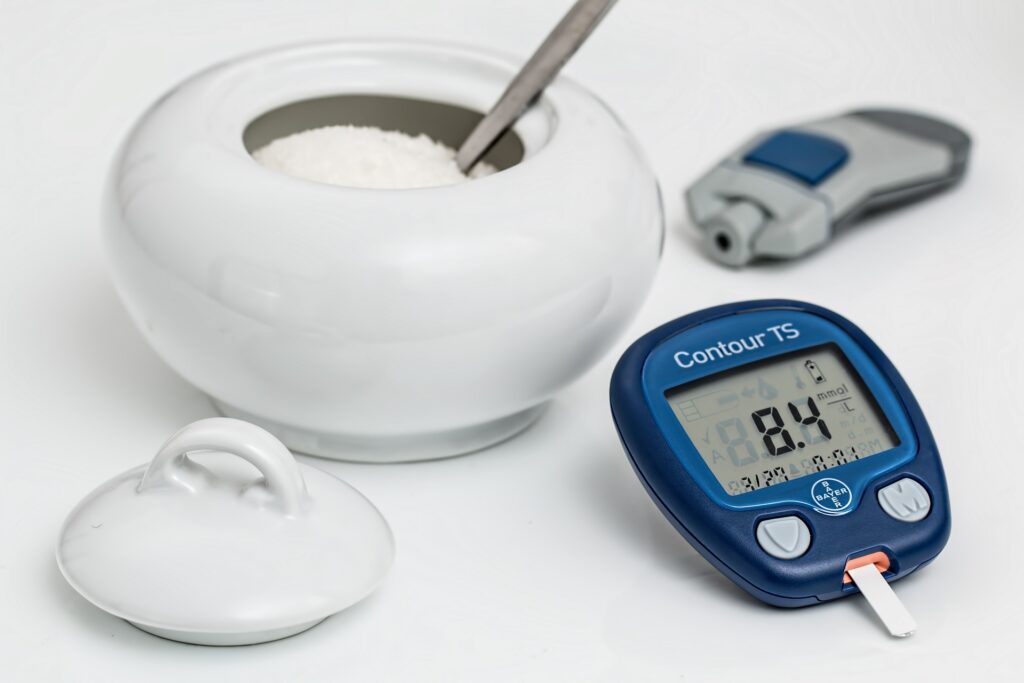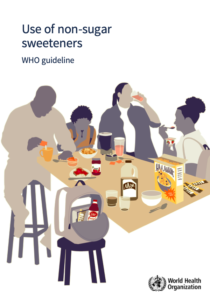
 Geneva: In its new guidelines released today, the World Health Organization (WHO) suggested that non-sugar sweeteners (NSS) not be used as a means of achieving weight control or reducing the risk of noncommunicable diseases (NCDs).
Geneva: In its new guidelines released today, the World Health Organization (WHO) suggested that non-sugar sweeteners (NSS) not be used as a means of achieving weight control or reducing the risk of noncommunicable diseases (NCDs).
NCDs are the leading cause of death globally and were responsible for an estimated 41 million (71%) of the 55 million deaths in 2019.
The latest WHO recommendation is based on the findings of a systematic review of the available evidence which suggests that the use of NSS does not confer any long-term benefit in reducing body fat in adults or children. Results of the review also suggest that there may be potential undesirable effects from long-term use of NSS, such as an increased risk of type 2 diabetes, cardiovascular diseases, and mortality in adults.
Non-sugar sweeteners are low- or no-calorie alternatives to free sugars that are generally marketed as aiding weight loss or maintenance of healthy weight, and are frequently recommended as a means of controlling blood glucose in individuals with diabetes. Individual sweeteners undergo a toxicological assessment to establish safe levels of intake (i.e. acceptable daily intake, or ADI). However, there is no clear consensus on whether NSS are effective for long-term weight control or if they are linked to other long-term health effects at habitual intakes within the ADI.
It may be mentioned that high intake of free sugars has been linked to overweight and obesity, which affects nearly 40% of the global adult population and millions of children, and, in turn, diet-related noncommunicable diseases (NCDs), which are the leading causes of death worldwide. In response, the World Health Organization (WHO) issued recommendations to reduce the intake of free sugars in 2015. Various measures were being taken to reduce the consumption of free sugars as part of global efforts to address the epidemic of obesity and associated diseases.
Hence, since the release of updated WHO guidance on free sugar intake in 2015, interest in the potential utility of NSS in reducing sugar intake increased. Therefore, the WHO said it was considered necessary to review the evidence in a systematic manner and issue guidance on NSS use through the guideline development process.
“Replacing free sugars with NSS does not help with weight control in the long term. People need to consider other ways to reduce free sugars intakes, such as consuming food with naturally occurring sugars, like fruit, or unsweetened food and beverages,” says Francesco Branca, WHO Director for Nutrition and Food Safety. “NSS are not essential dietary factors and have no nutritional value. People should reduce the sweetness of the diet altogether, starting early in life, to improve their health.”
The recommendation applies to all people except individuals with pre-existing diabetes and includes all synthetic and naturally occurring or modified non-nutritive sweeteners that are not classified as sugars found in manufactured foods and beverages, or sold on their own to be added to foods and beverages by consumers. Common NSS include acesulfame K, aspartame, advantame, cyclamates, neotame, saccharin, sucralose, stevia and stevia derivatives.
The recommendation does not apply to personal care and hygiene products containing NSS, such as toothpaste, skin cream, and medications, or to low-calorie sugars and sugar alcohols (polyols), which are sugars or sugar derivatives containing calories and are therefore not considered NSS.
Because the link observed in the evidence between NSS and disease outcomes might be confounded by baseline characteristics of study participants and complicated patterns of NSS use, the recommendation has been assessed as conditional, following WHO processes for developing guidelines. This signals that policy decisions based on this recommendation may require substantive discussion in specific country contexts, linked for example to the extent of consumption in different age groups.
The WHO guideline on NSS is part of a suite of existing and forthcoming guidelines on healthy diets that aim to establish lifelong healthy eating habits, improve dietary quality and decrease the risk of NCDs worldwide.
It is worth noting that escalating rates of overweight and obesity are a threat to the health of billions of people across the globe. In 2016, more than 1.9 billion adults aged 18 years and older were overweight. Of these, more than 600 million were obese. In 2020, more than 38 million children under 5 years of age were overweight – an increase of nearly 6 million during the past 20 years. High body mass index (BMI) was responsible for an estimated 4 million deaths in 2017, with greater increases in BMI in the overweight and obesity range leading to a greater risk of mortality. Obesity is also a risk factor for many non-communicable diseases (NCDs), including cardiovascular diseases (CVDs), type 2 diabetes and certain types of cancer. Obesity and certain NCDs also increase the likelihood of becoming severely ill from COVID-19 infection.
– global bihari bureau





